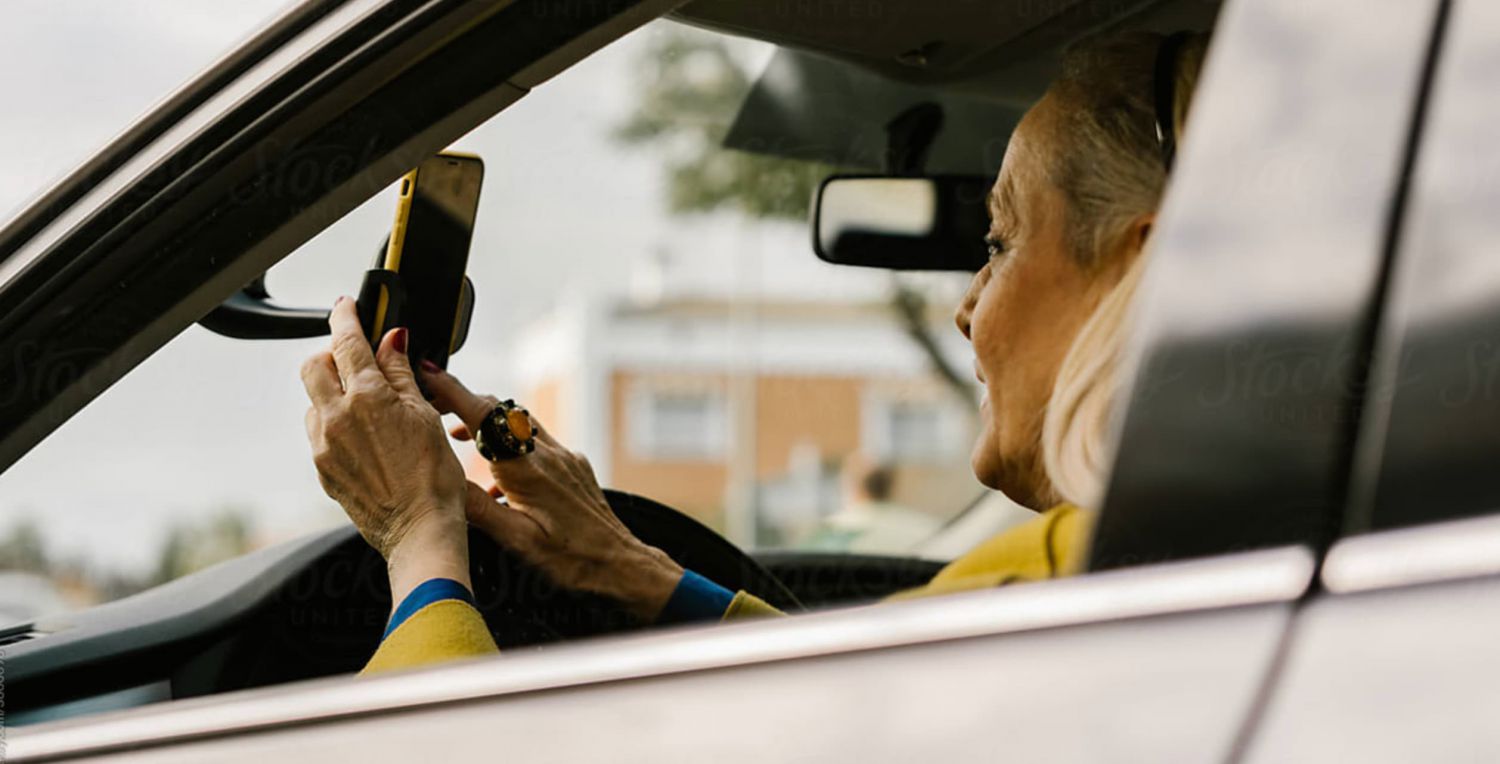Our
Positions
IMPROVING RIDE-HAILING DRIVERS’ CONDITIONS WITHOUT PUTTING AT RISK JOBS AND INNOVATIVE INDUSTRIES IN THE EU
The European Commission intends to publish early December a legislative proposal on platform work. The ride-hailing platforms fully support the goal of improving the working conditions of platform workers in line with the initial goal of the Commission on platform work. But the shift of the Commission to solely focus on the status of employment and especially the proposal to set up a “rebuttable presumption of employment” will lead to the loss of hundreds of thousands of earning opportunities in the EU.
If platforms were eventually forced to employ the drivers, this would lead to a substantial decrease in the number of ride-hailing drivers. Based on industry calculations we estimate that around 40% of drivers in the EU would not be needed by the platforms to service the demand if they were moved to a model that would have to consolidate working hours across fewer workers in order to increase efficiency and optimize task allocation. That would lead to hundreds of thousands of job losses in the ride-hailing industry as a whole. In addition, employed drivers would be paid in line with market standards in similar industries - close to the minimum wage - as opposed to earning revenues consistently higher than the local minimum wage.
Equally importantly, the vast majority of ride-hailing drivers do not want to be employed. This is not what they are asking for. Surveys (for example see here and here) conducted across Europe demonstrate that they enjoy the flexibility and enhanced revenues allowed by self-employment and by being able to work for multiple platforms simultaneously.
A requirement for platforms to employ their service providers would reduce their existing pay, cause a deterioration in working conditions due to the loss of flexibility, and most importantly result in a large number of job losses just as the European economy is aiming at recovering from a year and half of harsh conditions.
It is important to highlight that platform workers such as drivers enjoy the typical characteristics of being self-employed. They are free to connect and disconnect from the platforms, they unilaterally decide on their work schedule, they can accept or decline work offers and can work on multiple platforms while maintaining their own business at the same time. Drivers that work with ride-hailing platforms also have to comply with sector specific conditions. Drivers need to apply for a license - sometimes even two licenses - with the local transport authorities before they are allowed to offer commercial transport services to passengers. Often an exam and a background check are required to ensure the driver meets all safety requirements. It is clear that drivers across Europe invest time and resources preparing for exams, applying for licenses, investing in vehicles, with a view to generate a specific income that justifies the time and financial investment. These revenue expectations could be jeopardized if the drivers had to be employed.
Platform work has enabled hundreds of thousands of people all around Europe to benefit from decent working conditions and enhanced revenues. In all Member States, the gross earnings of self-employed ride-hailing drivers are above the minimum wage and often a multiple of it. Nevertheless, there is still room for improvement and platforms are committed to continually improving working conditions of the drivers.
First of all, ride-hailing platforms are open to discussing building a sectoral framework for a structured social dialogue with drivers’ representatives which could be held under the supervision of the European Commission or Member States. Platform associations such as Move EU could be part of this process.
In addition, ride-hailing platforms are ready to assess what can be done to improve the working conditions and benefits for drivers, provided that there is legal certainty around the independent status of drivers. We believe that a clear framework that allows platforms to offer more to drivers, without increasing the risk of reclassification, can unlock features that could include better access to social protection, access to representation, lifelong learning, saving plans and more clarity on how platforms’ algorithms work.
But addressing the objective of improving the platform workers’ conditions through the employment status, as the European Commission intends to do, will negatively impact working conditions for platform workers themselves, reduce their earning opportunities and also severely impact the tens of millions of European citizens who benefit from these services. Lastly, it will show that the European Union is taking a step back in incentivizing innovation and creation of jobs, as platforms would be severely affected.
Setting up a rebuttable presumption of employment or a shift in the burden of proof - as envisaged by the European Commission - will not bring more clarity on the status of platform workers. The introduction of a rebuttable presumption of employment will lead to drivers being reclassified despite their will to remain independent and control their working time, schedule, and earnings. In order to reverse the outcome, they would have to address the courts leading to additional cases. On the other hand, the introduction of a reversal of burden of proof, although less onerous in its implementation, will also increase legal uncertainty with court cases increasing. The result of both options would be a significant legal and financial uncertainty for platforms, limiting their capacity to offer work opportunities, to continue innovating or to accelerate the green transition. The potential significant drawbacks of both options is not justified by drivers’ desire as in most cases would mean less flexibility and reduced earnings.
What is required to help fight against bogus self-employment is not new legal processes which will increase litigation but clearer criteria to define what falls into self-employment and what doesn’t. Such criteria should include the ability for the platform worker to unilaterally choose to work or not at any given time on any platform of their choice, and on multiple platforms simultaneously. It should not include the inability to set prices as ride-hailing efficiency heavily relies on the ability of platforms to balance offer and demand in real-time.
Ride-hailing platforms are very much willing to support improving working conditions of platform workers. But creating more legal uncertainty and litigation will only lead to less work opportunities for the hundreds of thousands of platform workers throughout Europe.
About us
Move EU brings together the leading actors in the field of ride-hailing. Speaking with one voice, our members aim to foster sustainable deployment of on-demand mobility and new mobility services in the European Union. Move EU members connect passengers with licenced on-demand taxi and private hire vehicle (PHV) drivers, for the purpose of carrying passengers in return for payment.

IMPROVING RIDE-HAILING DRIVERS’ CONDITIONS WITHOUT PUTTING AT RISK JOBS AND INNOVATIVE INDUSTRIES IN THE EU
All positions
Move EU proposes the following principles for a future-oriented regulatory framework
-
Breaking down barriers: A Cohesive Single Market for ride-hailing and taxi services
The EU Single Market is a cornerstone of European economic integration, ensuring the free movement of goods, services, and people. However, in the realm of ride-hailing and on-demand mobility services, a fragmented regulatory landscape continues to stifle competition, innovation, and efficiency...
Read -
Move EU’s position on the greening of corporate fleets initiative
Move EU represents platforms which offer ride-hailing services with licenced PHV and taxi drivers across the EU. Digital platforms do not own vehicles, but partner with hundreds of thousands of professional drivers across Europe who purchase, rent or lease their vehicles...
Read -
The Future of Ride-Hailing
As we approach the 2024 European Parliament elections, Move EU, the EU association for on- demand mobility, advocates for forward-looking policies that acknowledge and enhance the pivotal role of ride-hailing in the European urban mobility landscape...
Read -
Update on Local Rules
Belgium In June 2022, the Brussels government approved a reform aiming at unifying the taxi sector and ensuring all players can operate in good conditions. Unfortunately, despite its harmonization objective, this reform has maintained...
Read -
The role of ride-hailing in the New Urban Mobility Framework
Move EU welcomes the European Commission’s December 2021 Communication setting out a new urban mobility framework. We are encouraged by the recognition of ride-hailing as a “game-changer” and of the model of private hire vehicles with drivers (PHV) services that compete with traditional taxi services...
Read -
Multimodal Digital Mobility Services (MDMS)
The European Commission recognised ride-hailing as a “game-changer” in urban mobility in its recent new EU Urban Mobility Framework, as well as in the Guidance Notice for taxi and private hire vehicles (PHVs)...
Read -
DECARBONISING RIDE-HAILING
Move EU brings together the leading actors in the field of new mobility services. Speaking with one voice, our members aim to foster sustainable deployment of on-demand mobility and ride-hailing in the European Union. Move EU members connect passengers with licenced taxi and private hire vehicle (PHV) drivers, for the purpose of carrying passengers in return for payment...
Read -
Platform Workers - Move EU Considerations regarding rebuttable presumption of employment
Move EU brings together the leading actors in the field of new mobility services. Speaking with one voice, our members aim to foster sustainable deployment of on-demand mobility and ride-hailing in the European Union...
Read -
Position Paper on Platform Workers
Move EU brings together the leading actors in the field of new mobility services. Speaking with one voice, our members aim to foster sustainable deployment of on-demand mobility and ride-hailing in the European Union. As information society, Move EU members act as online intermediaries between Private Hire Vehicle (PHC) or taxi drivers and passengers, efficiently pairing supply and demand...
Read -
Market-led interoperability
Move EU believes that interoperability is a key element of a modern transport system. However, considering the rapid pace of technological developments as well as the complexity and technical expertise required in developing common standards and APIs, businesses should be at the forefront of this process...
Read -
Benefits for consumers through enhanced competition of MaaS platforms
Contrary to social media platforms which have so-called lock-in effects, drivers and consumers can freely choose and switch between ride-hailing platforms to their personal advantage. The winner-takes-all principle is not applicable to MaaS platforms: several MaaS platforms can and will coexist in the future...
Read -
Fair competition and data analysis as intellectual property
Platforms spend significant resources to create the processes and infrastructure to properly analyse data. It is therefore worth noting that the collection and analysis of data is not a cost-free exercise, and that processed data is the intellectual property of a company...
Read -
Privacy and data protection at the core of data sharing
We believe that the protection of rider and driver data is fundamental, and will continue to strive for the highest level of privacy protection. The provisions of the General Data Protection Regulation (GDPR) constitute the legal basis for the collection and sharing of personal data, including location data...
Read -
EU Data Spaces for more cooperation
The European Commission’s plan to create common European data spaces, including in the mobility sector, has the potential to foster more cooperation between the public and private mobility sectors...
Read -
Voluntary data sharing and integration into multimodal platforms
The sharing of mobility data with local authorities can bring significant benefits for local transport systems, and is therefore supported by Move EU. We believe that a key principle for data sharing in this regard should be reciprocity...
Read -
PRINCIPLES ON DATA SHARING AND MAAS
Move EU, the leading voice of the European ride-hailing sector, embraces the potential and importance of data for a modern mobility system. Data is at the heart of our members. Every minute of every day, they generate millions of pieces of data concerning mobility...
Read
